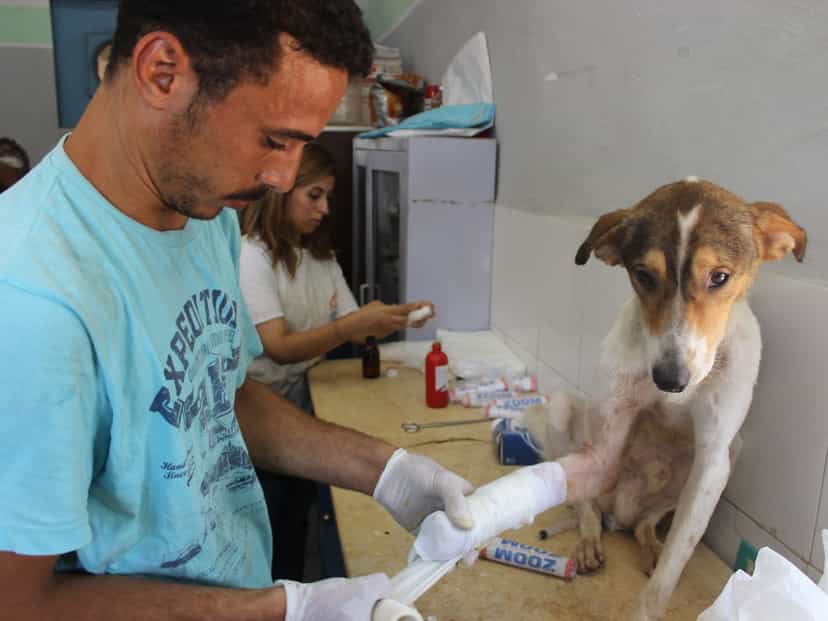
What is dementia? Does dementia effect dogs? What are the signs and symptoms of dementia in dogs? What tips can we use to help dogs with dementia? Our Manchester Dog First Aid expert Gemma Vale answers all of your thought provoking questions below.
Dementia in Dogs
Dementia often affects aging pets, and as with humans affects their memory, causing confusion, anxiety, disorientation, and ultimately altering the way the dog behaves.
Unfortunately, as with humans, there is no cure. There are, however, medicines that can aid in slowing the progression and a good chat with your vet can help decide if this is an option for you and your dog.

Signs and Symptoms
· Confusion or disorientation – wandering around as though lost, confused about their surroundings, or even going to the wrong door to be let out.
· Loss of toilet training – they may stop letting you know when they need to go out and begin soiling in the house instead.
· Change in sleep/awake cycle – may begin to sleep more during the day and be awake during the night, pacing, barking, and/or whining.
· Change in interaction – may stop responding to cues, may not recognise family members or other pets, may become more withdrawn and seem depressed.
· Change in activity levels – may become less active and sleep a lot, or they may become restless and begin to pace. They may become less inclined to interact with other dogs, sounds, or people, and may lack an appetite and/or less interest in grooming and maintaining themselves.
· More vocal – you may notice that your dog is more vocal than normal, howling, barking, or whining for no clear reason.

Tips for owners
First and foremost, if you suspect your dog may be suffering from dementia, speak to your vet as they will be able to diagnose and help you decide if medication is an option.
Other things you can do to help:
· Avoid sudden change – try to keep the layout at home the same so as not cause even more confusion. Keep to the same walking schedule and routes as this will also help relieve some of the anxiety they may feel. Remember, regular things have become alien to them so trying to keep things the same will help them to feel some form of familiarity.
· Enrichment – try brain games and puzzles to help with their memory and learning.
· Interaction – keep all interactions positive, even if the dog has forgotten a family member. It’s hard not to be upset but by providing a positive interaction each time the dog meets and greets, it will help them and their anxiety.
· Training – toileting may become an issue. Try to gently re-train your dog to toilet outside and remain patient with this new, slower learning process. You can also re-train other things they used to know, like tricks they used to enjoy.
· Patience – remember this new world will be scary for your dog so try not to get angry or upset with them if they are acting unusual like barking at night or toileting in the home. Each day brings a new daunting experience for your elderly pet, and they will need lots of calming reassurance from family members they may have forgotten, to remember they are loved and valued and that they will be protected during their senior moments.


